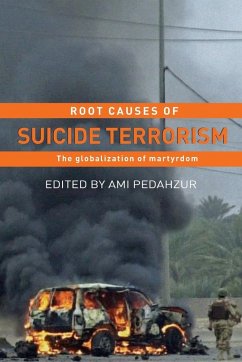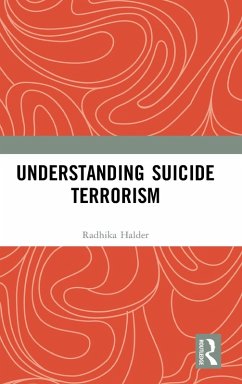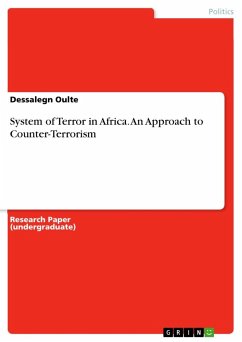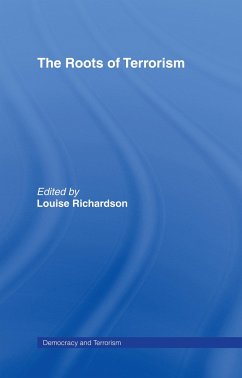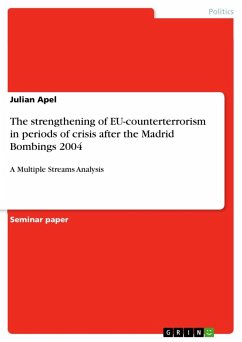
What motivates suicide terrorism?

PAYBACK Punkte
0 °P sammeln!
Essay from the year 2016 in the subject Politics - International Politics - Topic: Peace and Conflict Studies, Security, grade: First-class Honours, Royal Holloway, University of London, course: Terrorism and Counterterrorism, language: English, abstract: While in recent years suicide terrorism proved itself as one of the fastest growing threats to peace and security and a preferred weapon of choice of terrorists, there is a profound confusion as to why. Although suicide attacks have occurred during the course of history, they were often part of states' military campaigns rather than the prefe...
Essay from the year 2016 in the subject Politics - International Politics - Topic: Peace and Conflict Studies, Security, grade: First-class Honours, Royal Holloway, University of London, course: Terrorism and Counterterrorism, language: English, abstract: While in recent years suicide terrorism proved itself as one of the fastest growing threats to peace and security and a preferred weapon of choice of terrorists, there is a profound confusion as to why. Although suicide attacks have occurred during the course of history, they were often part of states' military campaigns rather than the preferred modus operandi of violent non-state groups which during the period between 1982 and 2015 became responsible for 4,814 attacks in over 40 countries. As recently illustrated by the atrocities in Istanbul's Sultanahmet district, Morocco's coastal city of Casablanca, and Cameroon's far north village of Bodo, the problem of suicide terrorism is gaining momentum and the insufficient knowledge that we have about the root causes of the phenomenon made it extremely difficult for policymakers to design effective counter-terrorist measures and adequately allocate attention and resources. Therefore, this study would try to shed light on this issue by arguing that suicide terrorism is motivated by the interaction between (1) psychologically traumatized individuals who are determined that death is the only salvation and desire to contribute to the fight against the injustice that generated their agony in the first place and (2) terrorist organizations which offer an outlet for these emotions and exploit personal emotional vulnerabilities in order to push through their political and/or religious ideological propaganda and advance their objectives. Nonetheless, what makes suicide terrorism resonant on both levels is arguably an enabling socio-political context which generates profound personal and communal grievances and provides suicide terrorism with a fertile ground to breed and expand. To support its argument, this study will firstly put the topic in its empirical context and briefly emphasize on the nature of suicide terrorism. Consequently, it will critically evaluate what drives individuals and terrorist organizations to engage in suicide terrorism and specifically focus on their 'explosive' interaction. Finally, this study will make its conclusions and identify areas for further research.






